
Different Kinds Of Electrical Outlets Around The World Everyworks Singapore
Type A (NEMA 1-15 U.S. 2 pin) max 125 V AC, max rating 15 A, (GB1002 Chinese 2 pin) max 250 V AC, max rating 6 A or 10 A Type B (NEMA 5-15 U.S. 3 pin) max 125 V AC, max rating 15 A and IEC standard 60906-2 Type C (CEE 7/16 Europlug) CEE 7/17 2-pin plug Type D (BS 546 5 A) Type E (French) CEE 7/6 plug & CEE 7/5 socket, 16 A

Power Socket / Electrical Power Point Installation/Replacement Electrician Singapore
230 V 50 Hz In Singapore, power plugs and sockets (outlets) of type G are used. The standard voltage is 230 V at a frequency of 50 Hz. Yes, you need a power plug travel adapter for sockets type G in Singapore. Do your power plugs fit in Singapore? In Singapore, they use power sockets (outlets) of type G. In Australia, you have plugs I.
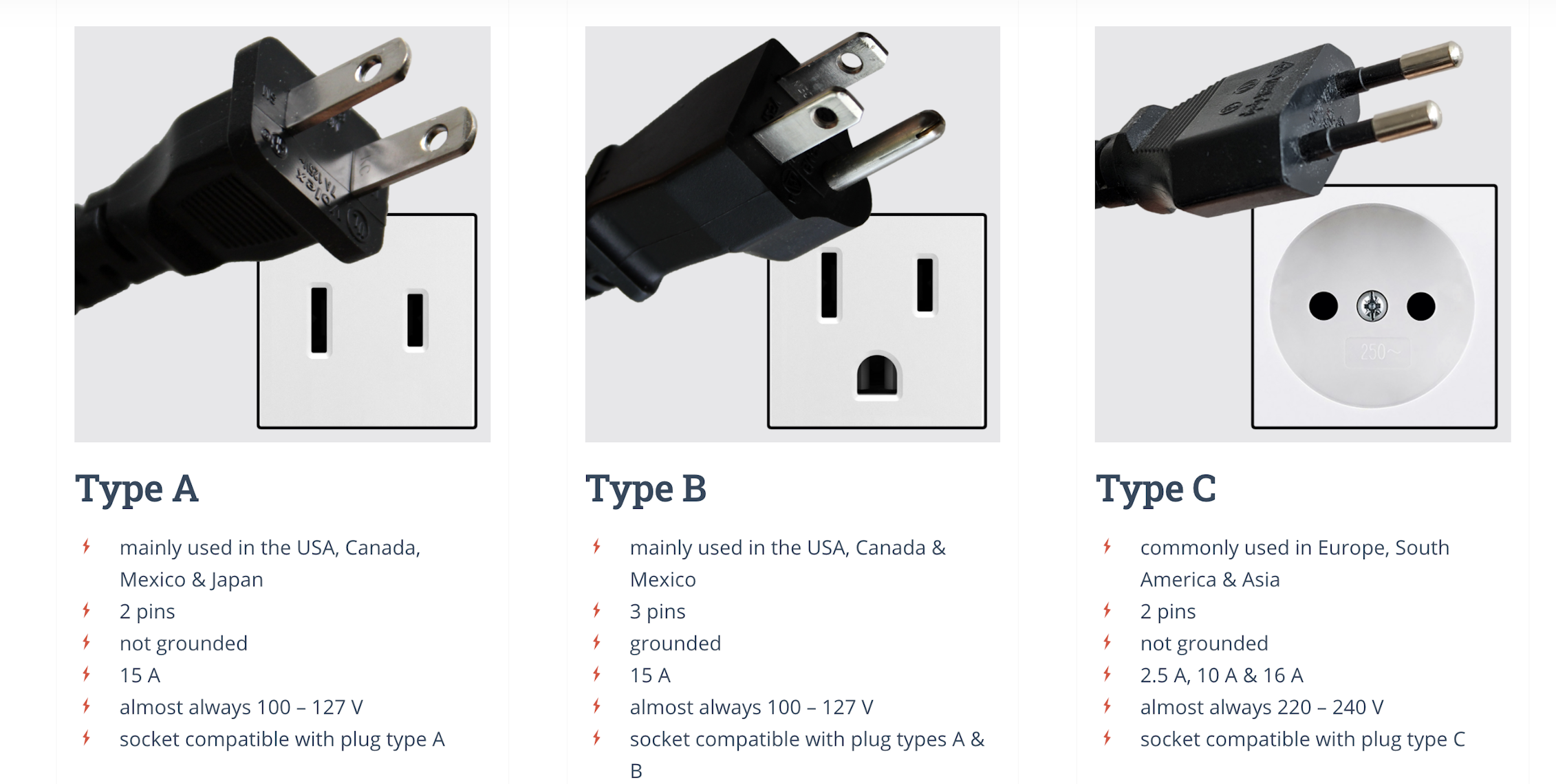
Why do different countries have different electric outlet plugs? Warrington
You can use your electric appliances in Singapore, if the standard voltage in your country is between 220 V and 240 V as in Europe, Australia, UK, Asia and most of Africa, but if the standard voltage in your country is the range of 100 V and 127 V as in Singapore, the United State and the most of South American Countries, you will need a volt.

International plugs Country, Different countries, Type a type b
Plugs used in Singapore. Ok, you are going to Singapore, you will use power plugs/outlets similar to the following picture (s): (includes Changi.) Plug Type G. Outlet Type G. Voltage used in Singapore is 230V and the electrical frequency is 50Hz. (more details after you choose where are you plugs from.) Garden by Marina Bay.

Singapore Electrical Outlets around the world
Singapore uses outlet types C, G, M at a voltage of 230V and a frequency of 50 Hz. Plug Compatibility: Type C, Type G, Type M Voltage: 230V Frequency: 50 Hz Type C Type G Type M Can North Americans use Electronics in Singapore without an Adapter? No!

A Guide to International Power Outlets MapQuest Travel
Type G You will need to consider what to pack, to ensure you can use your personal electrical appliances safely whilst abroad. This normally includes the use of a travel adaptor, which is a device that simply allows you to plug any UK electrical appliance into a foreign electrical socket.

Power Socket / Outlet Installation & Replacement at Cheap Price
In Singapore , electrical sockets and plugs are type C, G or M. Type C has two round pins, type G has three rectangular pins in a triangular pattern and type M has three round pins. In country Singapore is voltage 230 V and the voltage frequency is 50 Hz. If the voltage in your country is between 220V - 250V (as is in the Europe, Australia and.

Singapore Electrical Outlets around the world
The main type of power plug used in Singapore is Type G, which is oftentimes called the British or "UK plug" because that's where it originated from. This plug has three rectangular pins, arranged in a triangular pattern. Type G plugs are compatible Type G sockets only. Interestingly, this type of plug is also used in neighboring.
Singapore Power Voltage is rated the best in 12/2023 BeeCost
Last updated: 4 January 2024 Country-by-country list of plugs, sockets and voltages Below is a full overview of all countries of the world and their respective plugs/outlets and voltages/frequencies used for domestic appliances.
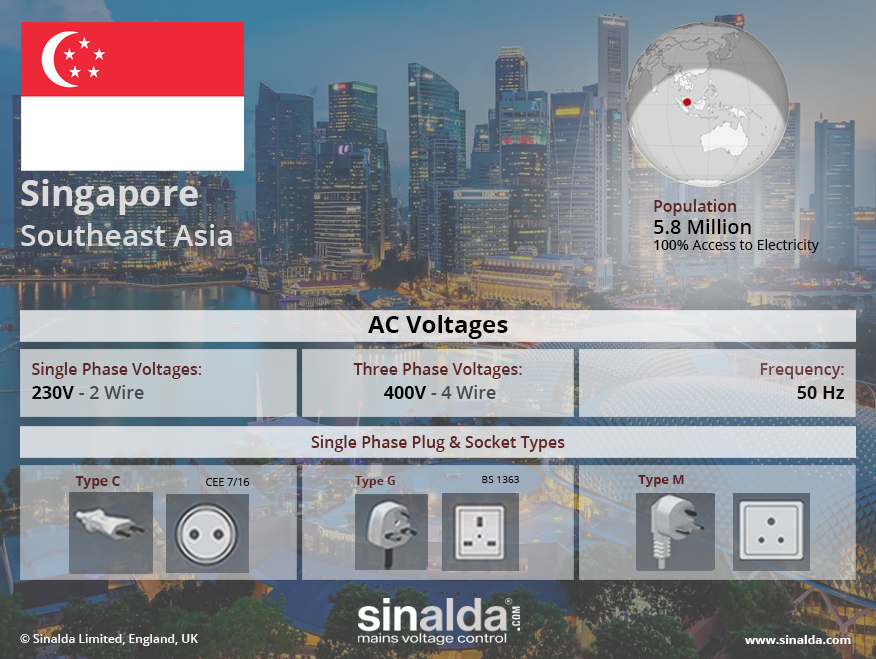
Voltage in Singapore Electricity Supply and Power Quality Overview
A hair-dryer can consume up to 2000 Watts, like the one in the picture above, due to the high power they usually work in one voltage system; this one is suitable for 220-240 Volts systems. You will need a step down voltage converter a device that can be plugged to 230 volts and it provides an outlet with 120 volts for your United States of.
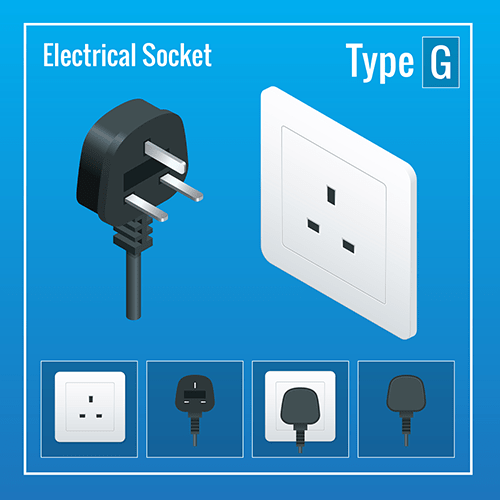
Singapore power plug adapter type voltage electrical Power Plug Socket Adapter
In Singapore, the standard voltage is 230V, and the frequency is 50Hz. This voltage and frequency are consistent with many countries in Europe. However, if your home country utilizes a different voltage, you may need a voltage converter. Countries like the USA, Canada, Japan, and some parts of South America use voltage levels between 100V and 127V.
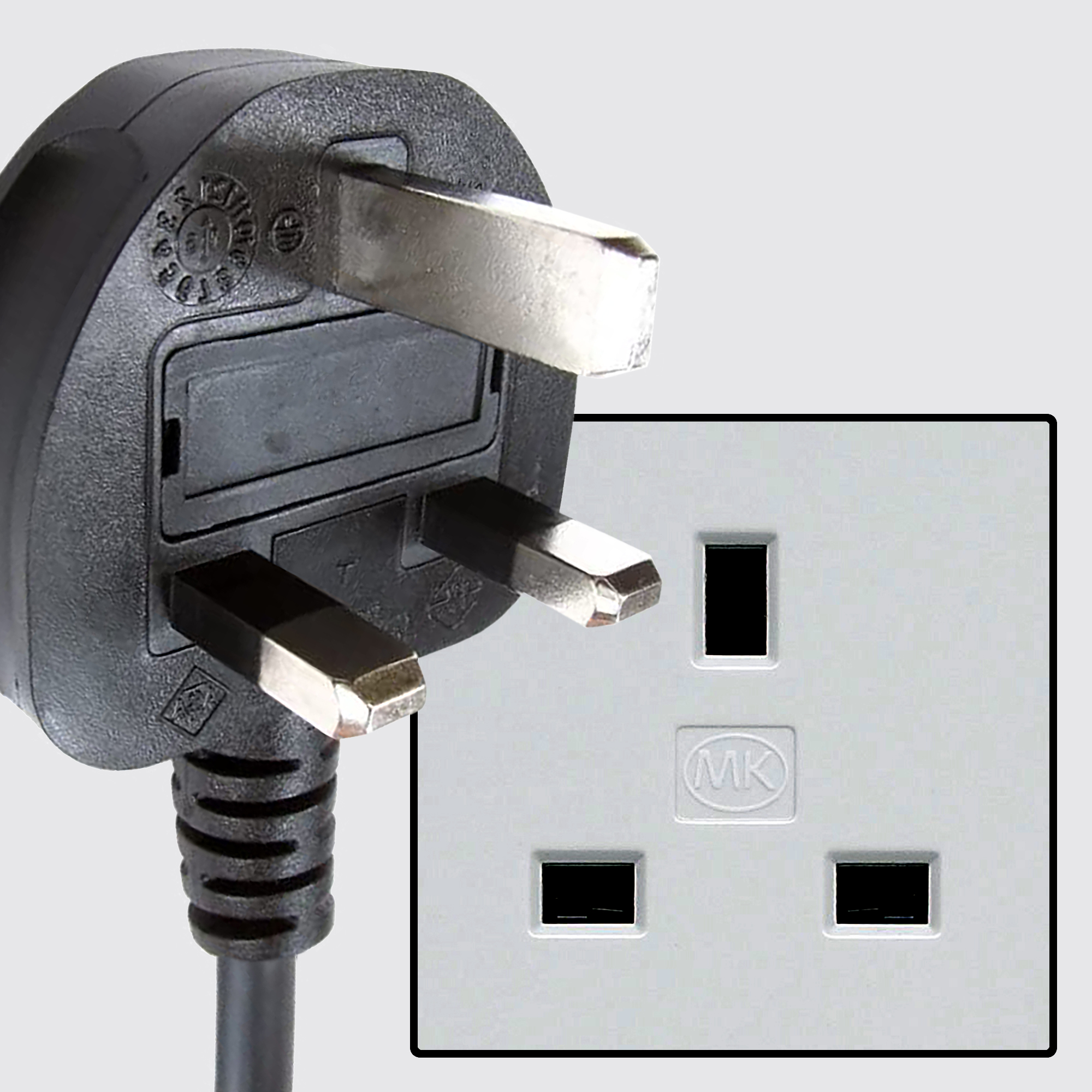
Plug & socket types WorldStandards
2 min read. According to Singapore Power, Singapore's standard electricity supply is 230 volts AC with a frequency of 50 hertz (230V/50Hz). The power plugs and sockets are mainly of type G, similar to that of Brunei, Hong Kong, Malaysia, and the UK. Different countries may use a different main plug from that of Singapore.

3 Most Common Types of Power Sockets Found in Singaporean Homes Everyworks Singapore
Need to know What power plugs are used in Singapore? Type G and Type C are Singapore power plug adapters. Most buildings in Singapore use Type G plugs, but you may also find Type C plugs in some places, especially in older buildings or hotels that cater to international travelers. Bảo Ngọc 2023-04-17 • 6 min read Photo by Mike Enerio / Unsplash
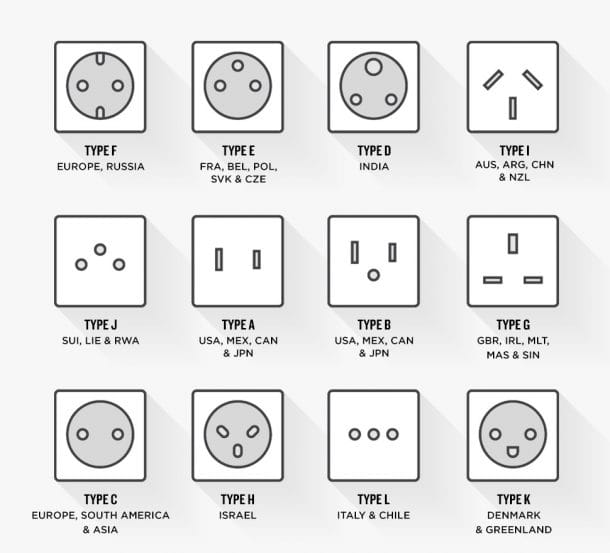
Here's Everything You Need To Know About Different Power Soc
230 V 50 Hz In Singapore, power plugs and sockets (outlets) of type G are used. The standard voltage is 230 V at a frequency of 50 Hz. For more information, select the country you live in at the top of this page. Buy a power plug (travel) adapter We don't sell power plug adapters.
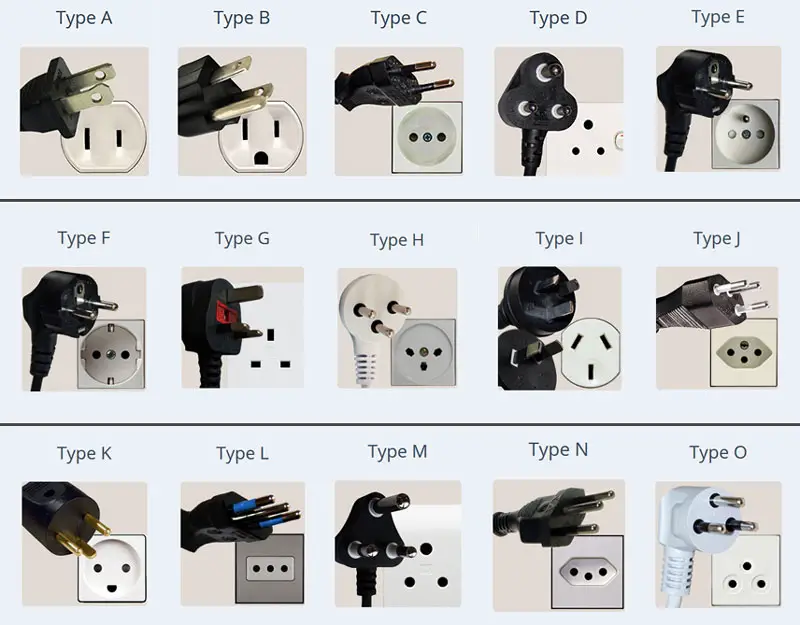
Electrical Plug/Outlet And Voltage Information By Country
The standard voltage and frequency in Singapore are 230 V and 50 Hz, respectively. Travelers from countries such as Australia, the UK, Europe, Africa, and most parts of Asia, can use electric appliances in Singapore without a voltage converter. This is because manufacturers take into account slight deviations in voltage.
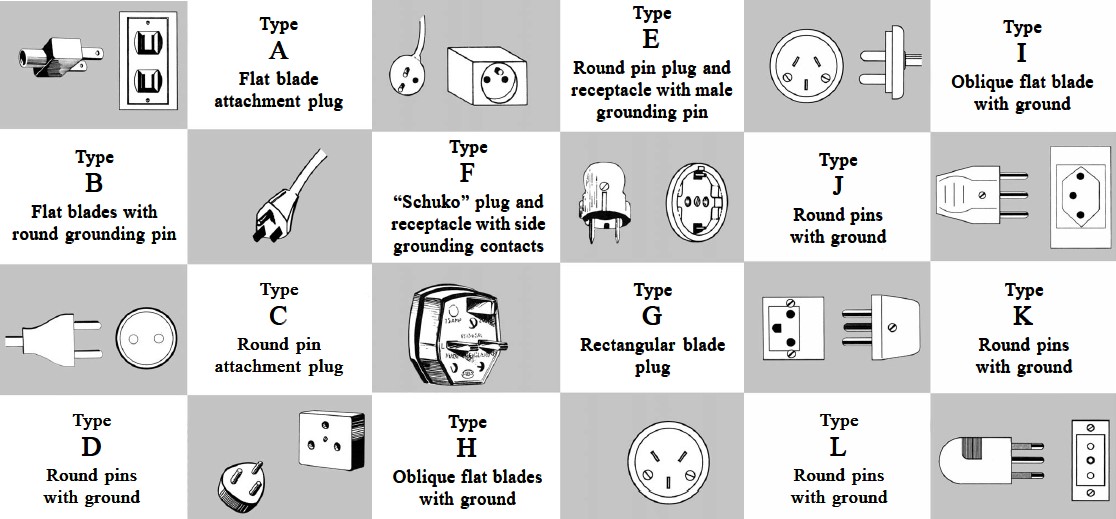
Worldwide AC Voltage & Frequency Standards RF Cafe
Key Takeaways Singapore's electricity operates at a voltage of 230 volts and a frequency of 50 Hz. Type G power plug sockets are commonly used in Singapore, which are the same as British-style plugs with three rectangular holes.